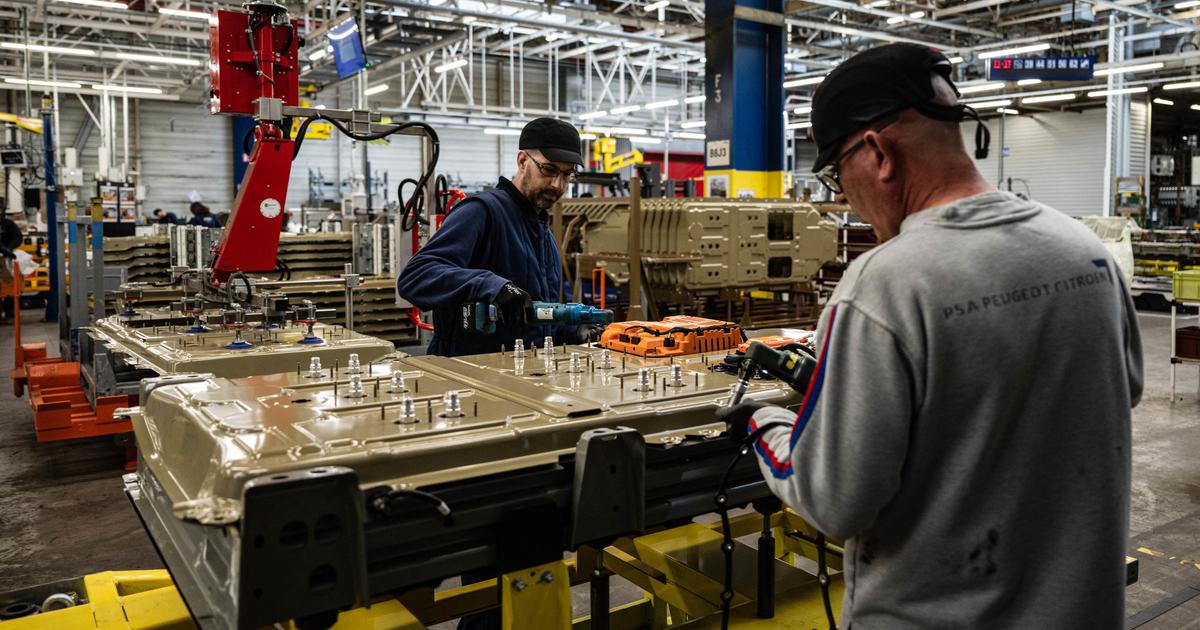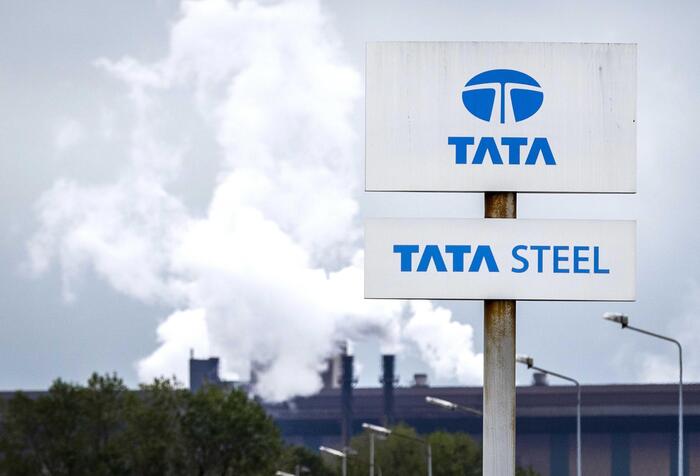The very first French battery factory for electric cars is preparing to open its doors on Tuesday near Lens, a major industrial event for the France which wants to guarantee its independence from the Chinese giant and even become an exporter by the end of the decade. This is one of Emmanuel Macron's hobbyhorses: reindustrialization will involve the production of batteries on French and European territory, while China has taken a considerable lead in this area.
ACC (Automotive Cell Company), a joint venture in equal parts between TotalEnergies, Stellantis (born from the merger of PSA and Fiat-Chrysler) and Mercedes-Benz is therefore the first to open its "gigafactory" in France. At present, only a handful of them are active in Europe but projects are flourishing on the Old Continent where about fifty projects have been announced in recent years.
Four plants planned in the North
In northern France, emblematic territory of the country's deindustrialization, four factories are due to be built before the end of the decade. There is therefore ACC in Billy-Berclau, which adjoins the historic PSA site in Douvrin, the first, which should be followed by the project of the Sino-Japanese group AESC-Envision in Douai (North), whose production will be destined for Renault from early 2025. The Grenoble start-up Verkor - supported by Renault, Schneider Electric and Arkema - plans to launch production at its Dunkirk plant from mid-2025, again for the Renault group. Finally, ProLogium, a Taiwanese group specializing in so-called "solid-range" batteries, announced in mid-May that it would also be located in Dunkirk, with a production start scheduled for the end of 2026.
The start of production is scheduled for this summer and ACC is targeting 13 GWh of annual capacity by the end of 2024 with 600 jobs at stake. From 2030, the goal is to reach 40 GWh, the equivalent of 800,000 batteries produced per year, and to employ 2,000 employees. In mid-April, builders and institutions had announced their desire to train 13,000 people to meet the needs of the "Valley of batteries" as politicians and industrialists have nicknamed this territory ranging from Dunkirk to the former mining basin.
20,000 jobs by 2030
The Automotive Platform (PFA), which brings together professionals in the sector, estimates that the four French "gigafactories" (very large factories) will create 20,000 jobs by 2030. The ambition is great, but so are the challenges that accompany it. The France aims to be self-sufficient in battery production by 2027 to supply its automotive industry. As in other countries of the European Union, the sale of new combustion vehicles will be banned from 2035.
The goal is even to manage to export, according to the Elysee. But the France, even if it is better off than some of its European partners, remains handicapped by the price of its energy compared to China or the United States, which massively subsidizes this industry thanks to the Inflation Reduction Act (IRA).
Another major challenge is the supply of critical metals. Lithium-ion batteries are very greedy in nickel, cobalt or manganese, whose production chain, from extraction to refining, is now largely controlled by China. There are ways to design batteries without these materials - solid-state batteries, lithium-sulfur batteries - but these technologies are still experimental.
In Billy-Berclau, ACC hopes to pave the way for a developing ecosystem in northern France with the opening of three more similar plants in the coming years that will attract material suppliers and battery component manufacturers. On May 12, Emmanuel Macron announced the establishment in Dunkirk of a cathode production site - one of the two electrodes composing a battery - financed by the Chinese XTC and the French Orano.






